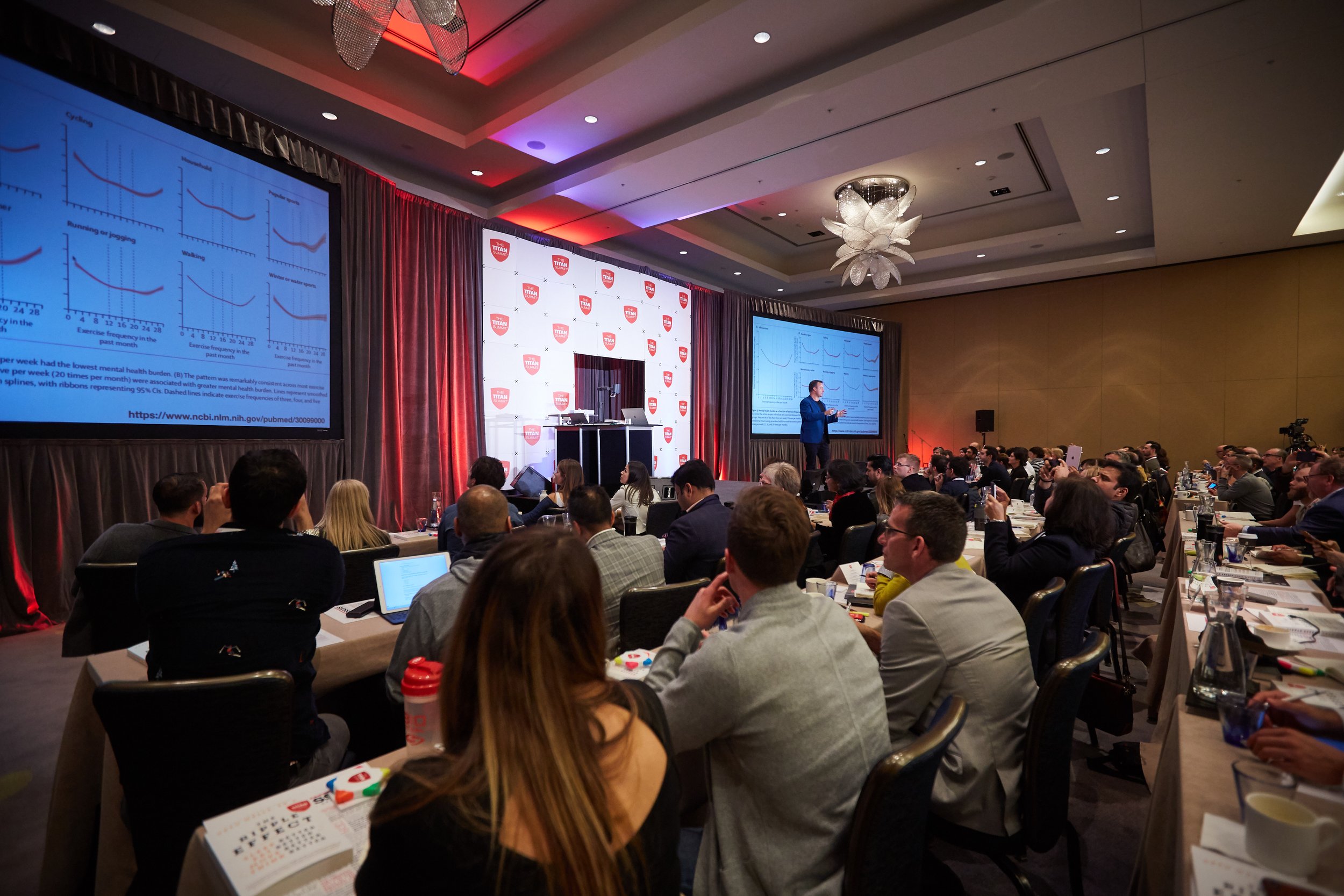
INSIGHTS
ACTIONABLE SCIENCE FROM Dr. WELLS’ NEWSLETTER
Do blue light filters actually work?
In previous newsletters, we’ve discussed the dangers of exposing your eyes to light before bed. Due to our circadian rhythm (our internal biological clock), we naturally feel sleepy at night as the pineal gland releases melatonin, the sleepy hormone. When we expose our eyes to light, a signal is sent from our retina to our brain telling it to stop producing melatonin. Basically, we’re telling our body that it’s daytime instead of nighttime. This can cause an increase in sleep latency (the time it takes to fall asleep), sleep inertia (drowsiness when you wake up), and an overall reduction in sleep quality. This is why it's incredibly important to dim lights at night and keep your bedroom as dark as possible.
Bookend your Days
Our recent survey revealed that managing stress and anxiety is still one of the biggest pain points for members of our community. While many of you noted that your physical health has improved since the beginning of the pandemic (nice work!), for many of you, your mental health has gotten worse.
Vegetables really are all they’re cracked up to be
In today’s fast paced world of work, family, and other commitments, it can be hard to stick to a healthy meal plan. It’s much easier to grab a chocolate bar on your way out the door or order take out instead of cooking after a busy day at the office. One of the biggest challenges for people is getting enough vegetables and fruits into their diet. But vegetables and fruits - and vegetables in particular - are so important for health.
What we've learned so far: A recap of 2021
We’ve given you a lot of new information this year and it can sometimes be a lot to digest. We know many of you don’t get around to reading the emails every week so every few months, we like to do a recap of what we’ve learned to help solidify ideas and let you catch up if you've fallen a bit behind!
Strengthen your muscles to boost your health
Strength training, or resistance training, is any form of exercise in which your muscles are working against a resistance to produce force. While there are many different variations of resistance training, people tend to love it or hate it. For those of you who are nervous about strength training, here is a basic overview of why you should do it, how to start a strength training program, and why it's not as daunting as you might think!
Let's talk about protein
Just like healthy fats and carbohydrates, high quality proteins are an important part of a balanced diet. This week we’re going to dive into what proteins are, why they’re so important for health, and how you can incorporate both animal and plant-based proteins into every meal.
Sleep to Move and Move to Sleep!
If you’ve been with us for a while or participated in any of our programs, you’ll know that one of our main principles is how connected the body is. Sleeping well leads to better eating habits. Proper nutrition allows you to exercise more efficiently. Better physical health leads to better mental health. All of these lifestyle factors are interconnected and by improving one aspect of your health, you can improve the others and amplify your performance. This is what we call the ripple effect.
The Myth of Multitasking
In previous newsletters, we’ve discussed strategies to increase focus and how you can try to eliminate distractions as much as possible. One of the strategies we’ve discussed is Power Work, in which for a period of time a few times per day, you are focusing on your most important task and only your most important task until you get the job done or your Power Work period is over. This is also known as single tasking, which is an extremely powerful tool for you to use. If you can learn how to single task, you can uplevel your focus and boost your productivity.
What's the deal with Heart Rate Variability?
You might have heard the term ‘Heart Rate Variability’ thrown around in the past couple of years. With the recent advances in wearable technology, many fitness trackers and health apps have added this functionality to their list of features, such as VIIVIO, Oura Ring, and Whoop.
Fats: The Good, The Bad, and The Ugly
These days with all of the fad diets and constant overload of information on the internet, knowing what to eat can be confusing! This week, we’re going to discuss one of the most hotly debated topics: fats.
Stretching: More than just injury prevention
I’m sure you’ve heard countless times that you should be stretching on a regular basis. If you’ve participated in any of our programs, you might remember the 4 “F”s of Fitness: Fit (aerobic training), Force (strength training), Fast (interval training), and Flex (flexibility training), which should all be incorporated into your regular fitness routine. You’ve also probably noticed a difference between those times you’ve stretched after a workout and the times you didn’t. When you stretch, you feel good!
The Link Between What you Eat & How you Sleep
As you know, sleep is one of the key pillars for physical and mental health. Sleep affects every system in your body. Sleep is important for focus, immune function, and mood. Sleep is when we repair tissues, remove waste, and restore energy levels. When we get enough sleep we just feel awesome!
The Power of Why
We hope you enjoyed a nice break over the holidays! Now that you’re recharged and refreshed, it’s time to get excited for the year ahead! We have a lot of great topics headed your way for the next few months. But first, we want to dedicate this week to taking a step back and focusing on your bigger purpose. This will set you up for the coming year and help you stay focused as we dive into more advanced topics to amplify your health and performance.
Understanding Stress
Life can be stressful (especially over the last few months!), and we are often in a state of chronic stress. When we take the time to really slow down and activate our parasympathetic system, we can mitigate our stress levels and find a healthy balance.
Optimize your caffeine consumption
Many of us enjoy a coffee or tea from time to time (or maybe on a daily basis). But what are the drawbacks to coffee (besides the obvious insomnia?). What’s a safe amount to drink and when should you have it? We’re dedicating this week to clearing up these answers.















